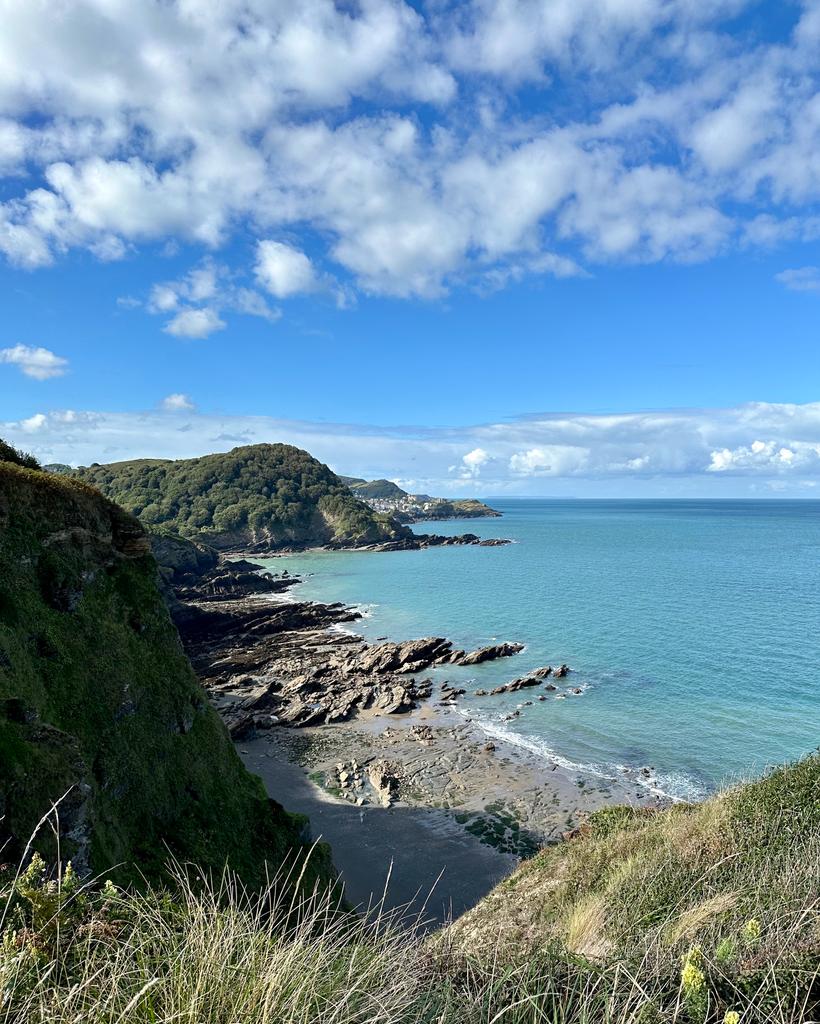The North Devon coast is an area of significant geographical interest for several reasons including its unique landscapes, geological formations, biodiversity, and cultural history. Ocean Backpackers offers 37 beds spread over 11 rooms and is ideally located in the picturesque harbour town of Ilfracombe. Convenient for all the eateries, boats to Lundy, and the southwest coast path that runs through the town, we also have a well-equipped self-catering kitchen and great communal space.
Reasons to visit North Devon…….
1. UNESCO Biosphere Reserve
• The North Devon Biosphere Reserve is one of the UK’s first biosphere reserves designated by UNESCO. It is recognized for its blend of natural habitats and human interaction, promoting sustainable development alongside conservation. The area includes both coastal and inland environments, showcasing a diverse range of ecosystems.
2. Dramatic Coastal Landscapes
• The North Devon coastline features some of the most dramatic and rugged coastal scenery in England. Cliffs, headlands, coves, and expansive sandy beaches create a varied landscape. Sites like Hartland Point, Baggy Point, and Morte Point are examples of how the coastline shifts between towering cliffs and sweeping bays.
3. Geological Significance
• The area’s geology is a key point of interest. The coastline is primarily composed of Devonian rocks, named after Devon, itself, dating back over 400 million years. The Hartland Quay area is particularly famous for its folded rock strata, providing insights into Earth’s tectonic history.
• The cliffs along the coast exhibit complex rock formations, including fossil-rich limestone, slate, and sandstone, allowing geologists to study ancient marine environments.
4. Cliffs and Coastal Erosion
• North Devon’s high cliffs, especially around Clovelly and Lynton, are subject to significant coastal erosion. This dynamic process continues to shape the coastline, providing ongoing research opportunities in geomorphology and environmental sciences.
5. Biodiversity
• The coastline is home to an array of wildlife, both terrestrial and marine. Lundy Island, located off the coast of North Devon, is a key marine conservation zone. The island and surrounding waters are a sanctuary for marine life, including seals, dolphins, puffins, and seabirds.
• The coastal areas also have important habitats like salt marshes, dunes, and heathlands, supporting rare plant and animal species. The Braunton Burrows sand dune system is one of the largest in the UK and is recognized for its rare flora and fauna.
6. Historical and Cultural Heritage
• The North Devon coast has a rich cultural history. Towns like Ilfracombe and Clovelly have centuries-old fishing and maritime traditions. Clovelly, with its cobbled streets and car-free policy, preserves the look of an ancient fishing village, making it a popular cultural and historical destination.
• There are also remnants of Bronze Age barrows, Iron Age hillforts, and medieval settlements along the coast, adding archaeological significance to the area.
7. Outdoor Activities and Tourism
• The natural geography of the North Devon coast makes it an ideal location for outdoor activities like surfing, coasteering, hiking, and wildlife watching. Beaches such as Woolacombe, Croyde, and Saunton Sands are famous for their surf, while the Southwest Coast Path offers extensive hiking trails that provide stunning coastal views.
8. Environmental Protection and Conservation
• Due to its ecological importance, many areas along the coast are protected under various conservation designations, such as Sites of Special Scientific Interest (SSSIs), Special Areas of Conservation (SACs), and Area of Outstanding Natural Beauty (AONB) now known as National Landscapes. These protections ensure that the natural beauty and biodiversity of the region are preserved.
The North Devon coast is of geographical interest because of its diverse geology, spectacular landscapes, rich biodiversity, historical significance, and ongoing environmental conservation efforts. Its blend of natural beauty and scientific importance makes it a key area for study and tourism alike and great choice for both educational and sporting trips.




